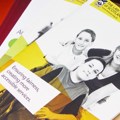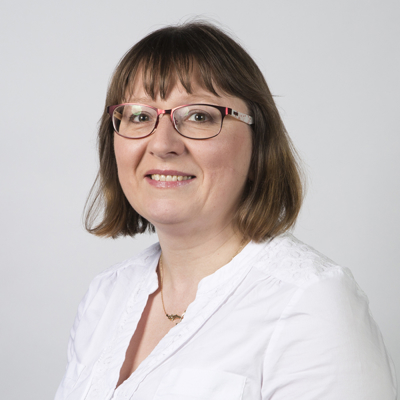The power of partnerships
Our Equality and Diversity Manager, Elaine MacGlone, reflects on her key learnings from the Stonewall Scotland Workplace Conference 2019.
I was delighted to get the chance to attend the afternoon sessions of the Stonewall Scotland Workplace conference at the end of last year. The strong theme of the afternoon for me was working together with others is a great way to achieve and exceed mutual goals.
Conference session - Establishing partnerships: the benefits of working with others
As a membership and representative body, the Society often works in partnership with others to deliver mutual goals and projects, so this really impacted on me. We regularly work with partners in the equality and inclusion work, including the Glass Network in delivering the highly successful #theseareourprinciples campaign.
Two inspiring speakers talked us through their journeys, Martin Wilkie-McFarlane a Stonewall Diversity Champion from the Easterhouse Housing and Regeneration Alliance (EHRA) and Jamie Conway, Equality, Diversity and Inclusion Officer, North East Ambulance Service. Both work in areas where there are limited budgets and resources and for organisations that serve a large and highly diverse group of people.
EHRA is an alliance of eight housing associations working in Glasgow’s Easterhouse. Martin is CEO of one of the organisations. Each association needs to serve the needs of its tenants, staff, board members and others, but on their own each is a small organisation with few resources and staff. By forming an Alliance, together they have been able to do more than each would have achieved on their own. Benefits identified were,
- the EHRA has a bigger platform for greater impact and influence than each individual association
- sharing resources and experiences, including personal experiences
- sharing best practice
- acting as a critical friend or sense check.
To achieve this, there must be an understanding that different organisations are at different stages of their inclusion journey. Sometimes that requires a difficult conversation with your partners, but by continuing to talk a solution can often be found.
Jamie is part of a small team (comprising the equivalent of one and a half employees) covering equality and inclusion across all the protected characteristics in her organisation. She has developed relationships with partnerships across the UK and locally. These include other Ambulance Services, other NHS and emergency front-line organisations, and regional networking groups comprising private sector and public sector organisations. Pooling resources has been a great success for her organisation and she cites a successful LGBT recruitment event with partners at a cost of £500 to each organisation.
A quick discussion at each table disclosed a number of barriers to partnerships – such as a lack of contacts, which can be more difficult to overcome when working in an organisation which is not supportive or in a part of the world where the rights of LGBT+ people are negligible or non-existent.
Stonewall can also help with collaboration – they can link up people in different organisations and sectors helping to make contacts and relationships. The Stonewall Top 100 Equality Index is published but in reality over 500 organisations are part of this.
Q&A with Mary McAleese, Ireland's campaign for equality
Mary McAleese is a former President of Ireland and much more besides – current professor at Glasgow University, writer, journalist and LGBT+ campaigner heavily involved in the campaign for equality, LGBT+ rights and marriage equality in Ireland.
A running theme from Mary’s Q&A was the power of learning from other people's personal experiences. As a law student interested in human rights, an experience which shaped her views, was learning of the experiences of a gay male friend, rejected by his family for coming out and his sense of loneliness and isolation caused by the attitudes of others. In developing the campaign for LGBT+ equality in Ireland, her clear message was that it is a human rights issue affecting everyone – not a “gay issue”. This resulted in straight campaigners like Mary, taking a prominent role in the campaign for LGBT+ rights. Mary pointed out this was necessary in part due to the fact that many LGBT+ people involved in the campaign at that time, were frightened to speak out about their experiences, for fear of losing their jobs and family – a sobering reminder of how society in Ireland was at that time.
Mary also highlighted how the Universal Declaration of Human Rights and the declaration on the Rights of the Child, influenced and changed the language and culture in this area. For example, the Irish constitution set down that parents were in full control of their children, but the Declaration states that parental rights have to be exercised in line with the child’s rights, and this has led to debates on how LGBTI+ relationships and rights are taught in school in Ireland, a contentious issue at the moment. Research into LGBTI+ teenagers' mental health run by Trinity College Dublin, has found that the school has the most negative effect on their mental health, so work to change this for the better is necessary.
Whilst Mary has been instrumental in many changes to the law in Ireland, she warned that there is a need to remain vigilant, as in some areas, rights that have been hard won are now under attack and in danger of being rolled back.
Mary’s Q&A left us all with a sense of enthusiasm for the future, continuing the theme of working together can bring bigger results. To paraphrase an old saying “no-one is an island” and that applies to individuals, groups and organisations working to achieve true equality.
Work in partnership with the Law Society
In our team we are always delighted to hear from anyone who would like to work in partnership around equality and diversity issues. You can contact us at diversity@lawscot.org.uk or on 0131 226 7411.

Equality and Diversity
Information about how we meet our responsibilities to our employees, the public and members, and the support we provide for members.

